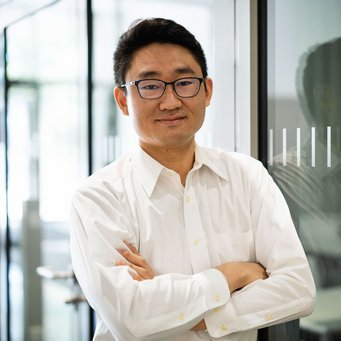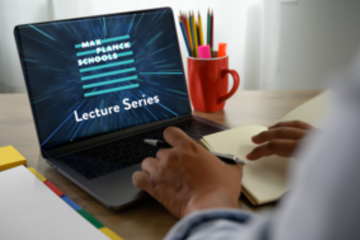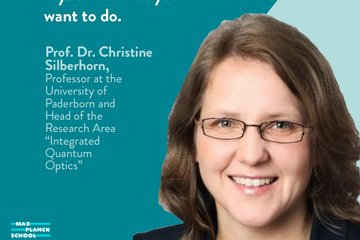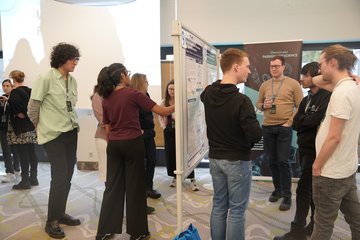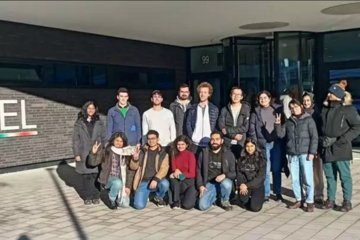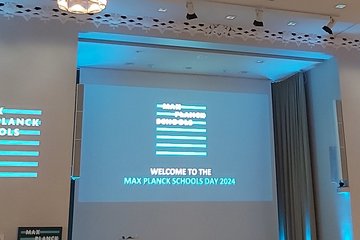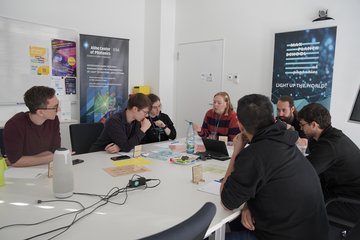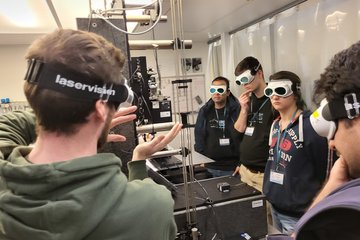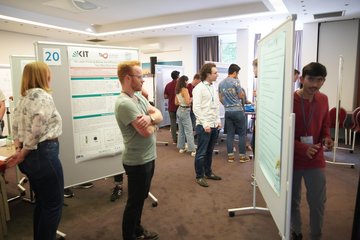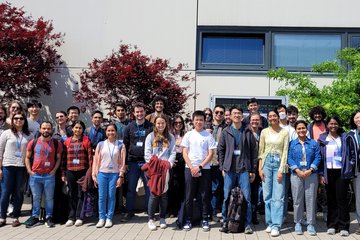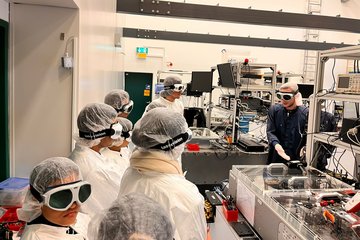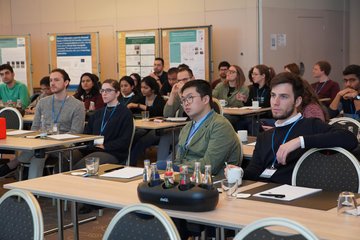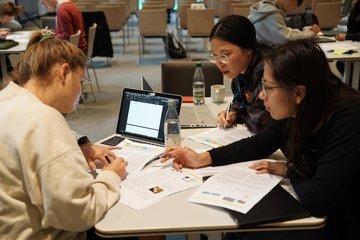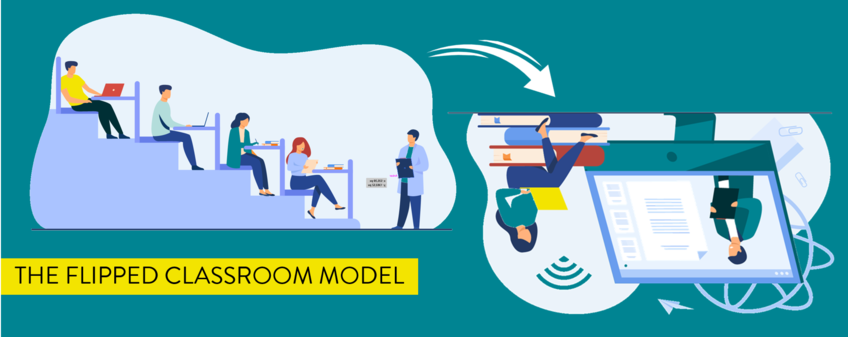
Flipping the Classroom
Digital Teaching at the Max Planck Schools
Tomoko Koda and Tzu-Huan Lin are the Learning Designers of the Max Planck School of Cognition and Photonics. Their job is to make the schools’ teaching and learning format as engaging and effective as possible. For this, they have been supporting the Flipped Classroom model which this article will talk about.
What is the "Flipped Classroom" model?
Current educational approaches across the three Max Planck Schools use blended learning: where students may learn through a range of digital teaching materials, work on assignments at their own pace, and virtually participate in synchronous learning activities. Reflecting this is the rise of the Flipped Classroom or Inverted Classroom model, first popularised in secondary education in the United States [1]. This asynchronous approach frees up in-class time for more student-centered activities and meaningful discussions, and students can concentrate on the “lectures” at their own pace. Instructors can also then provide individualised support and more hands-on projects during the synchronous online sessions. The Max Planck Schools aim for in-class time to be focused on practical knowledge application, which also allows lecturers to detect errors in students’ comprehension earlier.
Flipped Classroom in the Max Planck School of Cognition e-learning program
Most of the Max Planck School of Cognition (MPSCog)’s e-learning courses are structured based on the Flipped Classroom model: they consist of both asynchronous (self-paced) and synchronous (face-to-face live sessions) learning elements. For the asynchronous component, students review the provided materials (e.g., pre-recorded video lectures, assigned reading) and complete assignments and activities before the deadline at their own pace. For the synchronous component, we have weekly online live sessions which require students to be virtually present in the same online place at the same time to directly interact with instructors and classmates where students explore the weekly topics, play with the knowledge they gained through the asynchronous learning materials, and expand their views.
At the MPSCog, special emphasis is placed on the relationship between tutors and students in order to create a positive learning environment. We feel that Flipped Classroom is an ideal format to achieve a better relationship between these two parties since they can use the actual face-to-face time for more practical activities instead of students passively listening to the lectures. This experience of practical application promotes deeper learning and understanding of the context. In order to help the process, we use many (gamification) online tools and active learning methods for formative assessments so that both students and instructors can learn about their comprehension level on the spot through active engagements, which makes it easier for the instructors to give immediate feedback and avoid leaving anyone behind before moving on to next topics. Students, moreover, commented that they enjoy and appreciate flexibility and autonomy that the Flipped Classroom offers.
The flipped classroom from a students perspective:
A case of the Max Planck School of Photonics
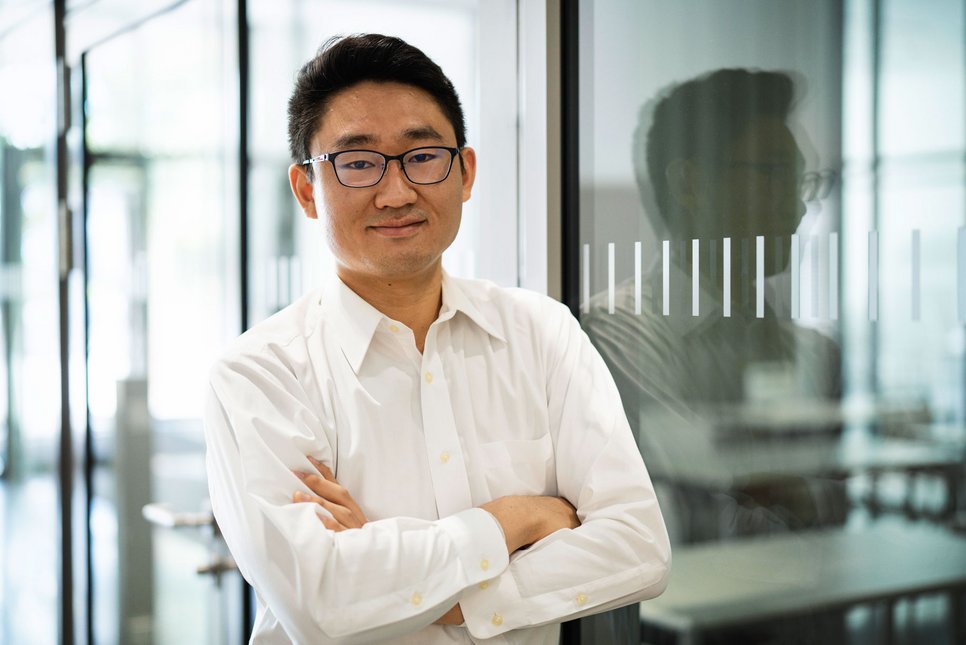
At the Max Planck School of Photonics, we use the time in classrooms to enhance students’ scientific communication skills. Tzu-Huan, our Digital Learning Designer, talked to PhD candidate Katsuya Tanaka to give insights into the experiences on learning through the Flipped Classroom model.
Can you introduce yourself?
"I am Katsuya Tanaka from Japan. I conduct my research in the field of Semiconductor Nanophotonics under the supervision of Prof. Thomas Pertsch and Prof. Isabelle Staude in the Abbe Center of Photonics in Jena."
Have you experienced the "Flipped Classroom" model in your own education?
"Yes! When I was studying for my Master’s degree, I had some seminars and photonics courses using this model. During the activity in class, students had to show their solutions on the blackboard, basically through exchanging some scientific ideas with colleagues. So with the teacher, as one of the participants, we had not only convinced our peers but also our teacher during the exchange."
Nice! But how did you feel about the learning materials uploaded in the Learning Management System (virtual campus) e.g. instructional videos and readings?
"It was really good that we had our own time for self-paced learning. For some students, they needed their own time to deeply understand the content. I think in the lecture, we are just passively listening to the lecturer, and sometimes it was a bit hard to follow and grasp some ideas from the content. If we have self-paced learning materials, we can really understand, for example mathematical deviations. So for scientists, I think it is important to have self-paced learning to truly understand the content."
Besides communication and presentation skills, what photonics-related skills do you think you've improved/ gained?
"With the Flipped Classroom model, we had a lot of debates regarding mathematics and physics. During these processes, you actually see what’s going on, and really understand the meaning of each equation. What I am trying to say is, by presenting in front of everybody, you have to explain the sophisticated meaning of individual mathematical equations - this makes us understand the relation between the mathematical formulas and photonics. In general, the Flipped Classroom helped me to better understand the meaning of each equation and physical phenomenon."
How do you see the Flipped Classroom for photonics education in the future?
"I believe this kind of model would give a lot of opportunities for students to learn how to exchange scientific ideas in an interactive form. From my side, what I had in the Flipped Classroom shaped my communication. So in the future, I believe there will be more Flipped Classrooms implemented in many photonics courses because this field really needs a lot of complex scientific exchange. I think many people are missing this opportunity and this kind of skill. So gaining the scientific interaction skill during one’s career stage would achieve success in my opinion."
Thank you very much for your time!
References: Bergmann, J., & Sams, A. (2014). Flipping for mastery. Educational Leadership, 71(4), 24-29.
Interested in trying out the "inverted classroom" for your own courses? As a Fellow and PhD candidate of the Max Planck School of Photonics, our Digital Teaching Team will be happy to help you! Even if you are not a member of the Max Planck School, our Digital Teaching Team is happy to engage in casual exchanges. You can find more information here.
